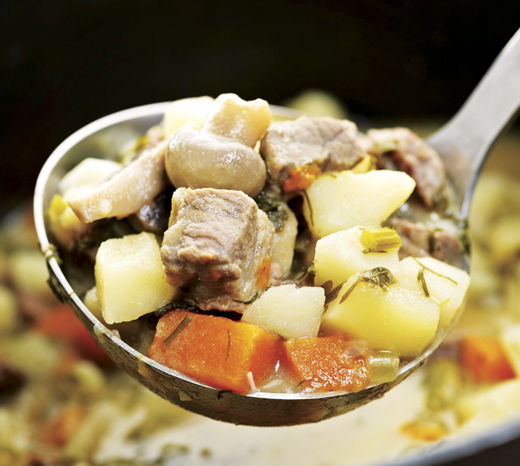“Anyone who says sunshine brings happiness has never danced in the rain.”
– Anonymous
When people who live elsewhere than Los Angeles phone me and ask “How’s the weather?” I often reply, “What do mean ‘weather’? We only have sun.” Call me an ingrate for grousing about the bounty of sunny days we experience, but constant sunshine has a real downside. Drought.
The natural climate in Southern California is semi-desert, and it would have always remained that way but for the aqueducts that carry water to the region from sources located hundreds of miles distant. That solution was engineered more than a century ago by the brilliant Irish immigrant, William Mulholland, who must have pined for the green hills of his childhood.
The other reason I kvetch about too much sunshine is quite mundane: I find it boring. I was raised on the East Coast, where the weather varies from season to season, and even day to day. Add to that my genetic memory that stems from ancestors in Italy and Ireland, where the weather also fluctuates, and it’s not very surprising that when it rains here I am delighted.
For several years, rain has been so rare in So-Cal that in 2018 my humongous fig tree, which with even moderate precipitation produces more than 1,000 fruit, bore none at all. In the first six weeks of 2019, however, we’ve seen more rain than in the past 2 years combined. Woohoo! I am one happy gal. The heavens are watering my garden. The fig will produce plump sweet fruit. I feel cozy indoors and happily splash in puddles like a big kid outdoors. Most important of all to this foodie, I have reasons to cook hearty meals.
For most of the year, I rely on my Italian ancestry for “Mediterranean Diet” recipes. But when it rains, I go full-bore Irish. The cooks of the Emerald Isle, where it’s chilly and rainy more than most places, get top marks for preparing delicious, stick-to-your-ribs “comfort food.”
In January, when L.A.’s record-breaking deluges began, the first meal I yearned for was Dublin’s most famous dish, Dublin coddle. A traditional Saturday-night specialty, coddle consists of bacon rashers, sausages, onions, potatoes, and a savory broth that are slow-baked in a low-temperature oven. With minimum fuss, busy housewives could always be sure that a hot dinner would be ready when their men came home after a few pints in the pub, no matter the hour. When I decided to make the coddle, I called a Dublin pal who now lives in L.A. and invited him to dinner. His response was: “Coddle?!? I could eat the Bee-jazus out of a plate of that!” And he did.
A few weeks later, another round of righteous rain saw me longing for a bowl of Irish stew. Determining the difference between “soup” and “stew” is like defining shades of green. Soups tend to be more watery, have finely cut ingredients, and have drinkable broth, while stews are thicker, the ingredients are chunky, and they are eaten with a spoon. Once the potato was added to Ireland’s soup pot in the 16th century, hearty Irish stew became such a mainstay of the Celtic kitchen that it now vies with corned beef and cabbage as Ireland’s national dish. For my money, the best Irish stew is made by adding a splash of another Irish treasure: Guinness. Being more of a beer fan, I don’t especially care for the dark, somewhat bitter brew (apologies to its millions of devotees), but adding Guinness to a beef stew brings out flavor that would make even the angels smile.
In between our heavy rains, we’ve seen consistent scattered showers. Yesterday it even rained while the sun was shining – a Los Angeles miracle! Tonight, the weather guy forecasted three more storms rolling in on Pacific low-pressure systems that promise rain will fall for most of the coming week. Color me giddy with glee!
This time, I’ll be making yummy shepherd’s pie. Traditionally, the dish is made with lamb (think shepherds and sheep). Another version made with beef is called cottage pie. Basically, the dish consists of meat cooked in an onion gravy that is placed in a pie pan, covered with mashed potatoes, and baked until the potatoes become crusty. The earliest cookery books say the meat was typically bits of any leftover roast and the pie pan was also lined with mashed potatoes, like a real pie crust. These days, cooks usually start by sautéing minced lamb or beef with onions, plus a bit of flour and broth to make a gravy, then follow through with the mashed potato topping. Some cooks also add chopped carrots, celery, and peas to the meat and gravy mixture. A similar method can be followed for chicken or fish. There’s even a vegetarian variation called shepherdess pie.
One thing is certain: whichever of Ireland’s favorite “comfort foods” you serve for dinner on a blustery, wet day, you can be sure that everyone’s taste buds will be dancing with joy! Sláinte! ♦
℘℘℘
An Irish Rain Vocabulary
People who live in a place where one natural element plays an important role in their lives have multiple words for its various forms. The Eskimo people have dozens of words for types of “snow.” Likewise, the Irish have many descriptions of “rain.”
Mist — tiny raindrops you can barely see or feel, like damp air.
Grand soft day — grey clouds, misty, not too cold, might rain later.
Drizzle — soft, misty rain that soaks through clothing.
Wetting rain — very thick mist that requires an umbrella.
Sun showers — short bursts of heavy rain intermixed with sunshine.
Cloudburst — a sudden, heavy shower that does not last long.
Lashing rain — heavy raindrops that bounce off the ground.
Trying to rain — solid cloud cover and heavy air, as if it might rain.
Driving rain — rain that beats against the windows, harsh and steady.
Rotten rain — steady rain that requires an umbrella.
Spitting rain — intermittent showers with medium raindrops.
Pelting rain — large raindrops that soak clothing and sting skin.
Pissing rain — heavy rain that requires fast windshield wipers.
Torrential rain — relentless rain that wipers can’t keep up with.
Pouring rain — continuous, heavy rain that challenges umbrellas.
Heavens opened — a sudden, heavy rain shower.
Downpour — a sudden, heavy, and long-lasting rain shower.
Thunder shower — a sudden heavy rain shower with lightning.
Shocking rain — heavy rain that runs off the land in rivulets.
Bucketing rain — sudden heavy downpours that can cause floods.
Raining stair rods — big, fat raindrops coming straight down and really hard.
Hammering rain — non-stop, heavy rain.
℘℘℘
~ RECIPES ~
Dublin Coddle
1⁄2 pound thick bacon slices cut in 3” lengths
1 pound Irish pork sausages
1 1⁄2 pounds potatoes, peeled and sliced 1⁄2” thick
1 pound onions
Salt and pepper to taste
Preheat oven to 350ºF. Boil a kettle of water. Put the bacon and sausages in a saucepan and pour in enough boiling water to cover. Bring back to a boil, then reduce heat and simmer for five minutes. Remove the bacon and sausages to a greased oven-proof casserole dish and save the liquid. Place the potatoes and onions on top of the sausages and bacon. Pour in enough reserved boiling liquid to cover. Season with salt and pepper. Cover tightly with aluminum foil or a lid. Place casserole in the oven and bake for one hour. Serves four.
Irish Beef Stew
1 pound beef cut in bite-sized chunks
1 cup flour mixed with salt & pepper
Olive oil
3-4 large carrots, peeled and cut in bite-sized chunks
2-3 large potatoes, peeled and cut in bite-sized chunks
2-3 onions, skins removed and cut in eighths
Water to cover
1⁄2 cup Guinness
Dust beef generously with flour mixture. Heat some olive oil in a large soup pot. Brown beef. Add carrots, potatoes, and onions. Cover with water and Guinness. Bring to a boil over high heat, then reduce heat to low and simmer at least two hours until beef is tender. Add salt to taste. Serves four. (Accompany with crusty bread to soak up every drop of the gravy!)
Shepherd’s Pie
Note: This is technically cottage pie. To make true shepherd’s pie, use ground lamb instead of beef.
4 cups mashed potatoes
1 1⁄2 lbs ground lean beef
1 medium onion, diced
2 carrots, diced 2 stalks celery, diced
1 cup peas (frozen is fine)
2 garlic cloves, minced
2 tbsp flour
1 tbsp tomato paste
1 cup beef broth
2 tsp Worcestershire
1 tsp fresh thyme leaves
1⁄2 tsp salt (or to taste)
Preheat oven to 400ºF. Sauté beef in a medium skillet over medium heat until browned, 7-10 minutes, then remove to a bowl. Add the onions, carrots, celery, peas, and garlic to the beef drippings in the pan and cook until soft. Reduce the heat to medium and add the tomato paste and flour. Sauté until the flour is completely moist. Return the beef to the pan. Add the broth, Worcestershire, and thyme. Simmer 5-10 minutes, until the gravy thickens. Add salt to taste. Transfer the meat mixture into a greased 8”x8” baking dish. Spoon the mashed potatoes over the meat mixture and smooth, especially at the edges, to keep gravy from bubbling over. Place the dish in the oven on a sheet pan to catch any drips and cook for 20-30 minutes or until the mashed potatoes are golden. Let stand 5-10 minutes before serving. Makes four servings. ♦



As many celts are Celiac. Use Gluten Free beer such as “Bards”and Arrow Root instead of wheat flour. My mother dropped batter drectly onto boiling
stew. To add flour or AR place in a cup and stir under a thin stream of
Water till smooth. Stir in slowly to stock.